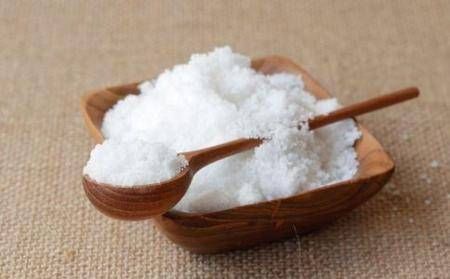May 15th is “National Iodine Deficiency Disorder Awareness Day”, also known as “National Iodine Deficiency Disorder Prevention and Control Day”. established. Iodine deficiency disease refers to the general term for a series of diseases or hazards caused by the lack of trace element iodine in the body. It includes endemic goiter, endemic cretinism, endemic subclinical cretinism, miscarriage, premature birth, stillbirth, etc. The disease is widely distributed and is endemic in about 110 countries around the world. It is listed as one of the endemic diseases in China.

When it comes to iodine deficiency diseases, the topic of iodized salt is inseparable. In daily life, many people indiscriminately reject iodized salt as condiments. In fact, this approach is inappropriate. This is because 2/3 of the iodine in the human body exists in the thyroid gland, which controls metabolism, and the thyroid gland is affected by iodine. Therefore, if iodine is insufficient, it may cause mental retardation, body fatness and lack of vitality. Since most areas of our country are iodine deficient, and iodine deficiency can cause iodine deficiency disease, the state compulsorily adds a small amount of iodized salt to the sodium chloride salt.
However, with the increasing incidence of hyperthyroidism, people point the finger at iodized salt, which is believed to be due to excessive iodine intake, and iodized salt seems to be the “culprit” of the disease. Indeed, hyperthyroidism is associated with excess iodine intake. But we can’t forge a beam on iodized salt and refuse the entrance of iodized salt.
Iodine experts said that patients with hyperthyroidism should not deliberately eat low-iodine and high-iodine diets. The key to this disease is to take effective treatment measures to control the thyroid function to a normal state for a long time. More than 90% of patients with hyperthyroidism are a kind of “diffuse goiter with hyperthyroidism”. The core problem is not iodine excess, but the existence of immune dysfunction, which produces a series of autoantibodies against the thyroid. Clinical data show that the main causes of diffuse goiter with hyperthyroidism are mental stress, anger, infection, overwork, trauma, etc.
If iodized salt is rejected blindly, the human body is in a state of iodine deficiency, which will induce other thyroid diseases. According to relevant studies, the incidence of thyroid cancer in iodine-deficient and high-iodine areas is significantly higher than that in areas with normal iodine intake. The level of iodine intake is related to the pathological type of thyroid cancer. The incidence of follicular cancer is high in iodine-deficient areas, and the incidence of papillary cancer is high in iodine-sufficient areas. Therefore, except for patients with hyperthyroidism whose disease has not been completely controlled, other groups do not need to deliberately refuse iodized salt. Especially inland residents, who usually eat less seafood and have insufficient intake, can supplement it with iodized salt.
Among the measures to prevent and treat iodine deficiency disorders, iodine supplementation is the most effective, simplest and most economical method. There are many ways to supplement iodine, and the measures taken by different countries are also different, including the use of iodized salt, injection of lipiodol, oral iodized oil pills, consumption of iodine-fortified foods (milk, bread, oil, and condiments such as caviar), drinking water Iodine supplementation, etc. However, iodized salt and lipiodol are widely used in the world, and lipiodol is mainly aimed at key groups, such as pregnant women, lactating women and school-age children.
(Beijing Youth Daily/Wu Shimin, author of medical science popularization)